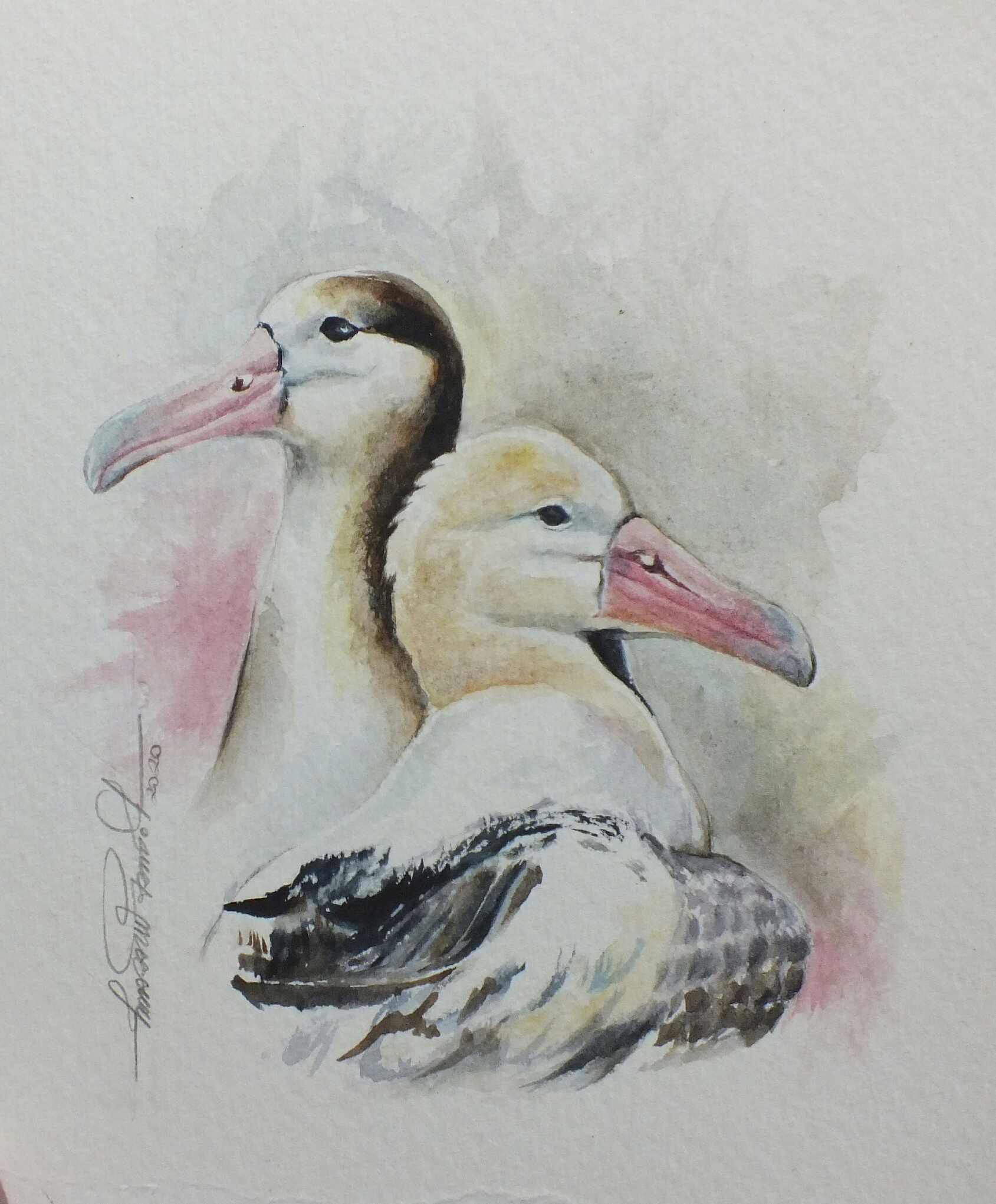 Short-tailed Albatross pair by ABUN artist Lucimara Wesolowicz, after a photograph by Cynthia Vanderlip
Short-tailed Albatross pair by ABUN artist Lucimara Wesolowicz, after a photograph by Cynthia Vanderlip
Eric Guiry (School of Archaeology and Ancient History, University of Leicester, UK) and colleagues have published open access in the journal Communications Biology on using archaeological information to learn about the past foraging fidelity of Short-tailed Albatrosses Phoebastria albatrus over thousands of years.
The paper’s abstract follows:
“Theory and field studies suggest that long-term individual foraging site fidelity (IFSF) may be an important adaptation to competition from increasing population. However, the driving mechanisms and extent of long-term IFSF in wild populations of long-lived, migratory animals has been logistically difficult to study, with only a few confirmed instances. Temporal isotopic datasets can reveal long-term patterns in geographical foraging behaviour. We investigate the isotopic compositions of endangered short-tailed albatross (Phoebastria albatrus) over four millennia leading up to their near-extinction. Although not exhibited by short-tailed albatross today, we show past sub-populations displayed a high-degree of long-term IFSF, focusing on the same locations for hundreds of generations. This is the first large-scale evidence for the deep antiquity of long-term IFSF and suggests that it’s density-driven. Globally, as populations of species like short-tailed albatross continue to recover from overexploitation, potential for resurgence of geographic specialization may increase exposure to localized hazards, requiring closer conservation monitoring.”
Read a popular article on the study here.
With thanks to Barry Baker and Ken Morgan.
Reference:
Guiry, E.J., James, M., Cheung, C. & Royle, T.C.A. 2022. Four millennia of long-term individual foraging site fidelity in a highly migratory marine predator. Communications Biology 5: 368..
John Cooper, ACAP Information Officer, 18 April 2022

 Español
Español  English
English  Français
Français